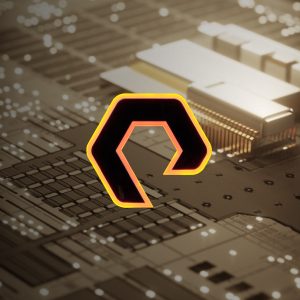00:01
Hi, Amy, welcome. Hi, Eric, thanks for having me. Please have a seat. So, there's a lot of data out there and about 85 to 90% of it is still sitting on hard disk drives.
00:18
Why should people look at replacing hard disk drives with Pure Storage®? Well, I think that it's been well understood for some time now that all-flash systems, which is the only thing that Pure Storage does, are significantly more efficient than HDDs, and that efficiency comes in the form of a smaller footprint,
00:37
less power required to run them because there's not these spinning platters inside of them, which also means less cooling. And until recently, the challenge was that the all-flash systems were historically architected and built for very high performance workloads. And so if you have a workload that doesn't need that high performance,
00:57
it was hard to justify paying a premium for all-flash to get those types of benefits until now, right, we kind of changed the game as we introduce an all-flash system that is actually competitively priced and a lower total cost of ownership in comparison to those HDD systems.
01:16
We've changed things up, and I'd say that now it's pretty much a no-brainer. So how does the pricing of flash storage solutions compare to other types of storage? Well, in the case of Pure, we recently introduced the E-family, and in this case we're talking about an acquisition cost under $0.20 a gig.
01:33
So it's extremely competitive with existing HDD systems and that's before you take into account all of the other benefits. There's a lower long-term total cost of ownership, about 40% less expensive from a TCO perspective. And there are additional benefits such as significantly lower failure rates.
01:53
Well, let's talk a little bit about the TCO comparison of HDDs versus SSDs. First of all, the actual cost associated with running these systems is much lower, and that's in the form of both the efficiencies in the data center, the less power, space and cooling, but it's also because they're much easier to manage.
02:12
So how do the costs of Enterprise HDDs compare to SSDs over their lifespan? So, there's a lower total cost of ownership associated with running these systems from a starting point because they're smaller, they take up less space in your data center.
02:28
That's accomplished because we have significantly better density associated with our all-flash systems in comparison to these big HDDs. So to put it in perspective, about ten years ago, HDDs were at four terabytes and flash drives were at about 512 gigs.
02:47
We've been delivering 48 terabyte DirectFlash® modules for quite some time and we are recently introducing the 75 terabyte DirectFlash modules and we'll go to 150s, 300s by 2026. And who knows what's next. That's in comparison to HDDs
03:06
that are in the 20 to 24 terabyte range in general. So that density really shrinks your footprint. The flash really reduces the total power consumed. And I think that something that's important for people to think about, is that they probably want to deploy systems
03:22
that they're ordering today with the plan that they can last and run and support them for seven, eight, nine years or longer. So how does the product compare to competitor SSDs? That's a great question. So, we actually don't use the off-the- shelf SSDs for a number of reasons.
03:39
The first is that there's a lot of overhead built into those systems and that's because they were created and architected to mimic a hard drive to go in systems that were built for hard drives in the first place. Now, our systems were built for all-flash from day one, and this gives us the ability to invest in software technology,
04:00
which we call direct to flash and build our DirectFlash modules from the raw NAND. So, when Pure has contended that we could reach an area by 2028 where enterprises won't be buying new all-HDD systems, that's not really based on commodity off-the-shelf SSDs beating HDDs. It's Pure’s DirectFlash technology that is going to cause that
04:25
major event for HDDs. Yeah, there's some, there's a little bit of overlap there, right, and so what we're seeing is a trajectory where even at the raw flash level, we're going to cross over and have the actual acquisition cost at the component level be less expensive in a few years.
04:42
But today we're delivering a lower total cost of ownership than those HDDs. And when you think about where you want to go and what type of investments that you want to make for your organization, I think you want to be planning to be able to leverage these technologies for five, six, eight, ten years or longer.
05:00
Well, whether our predictions are accurate and it's 2028 or it's 2027 or 2029, decisions that you make today, you want to ensure that they're well aligned with the direction the industry is going. And I just think there's absolutely no question that it's going to be all
05:16
about all-flash for both the reasons that we've talked about from an acquisition cost perspective, but also because of the increased pressure on organizations to improve their energy efficiency. So I don't think there's any question that going all-flash today is the safest investment for any organization.
05:34
Sounds like a pretty compelling story, Amy. Thank you. I sure think so. Thank you, Eric.


